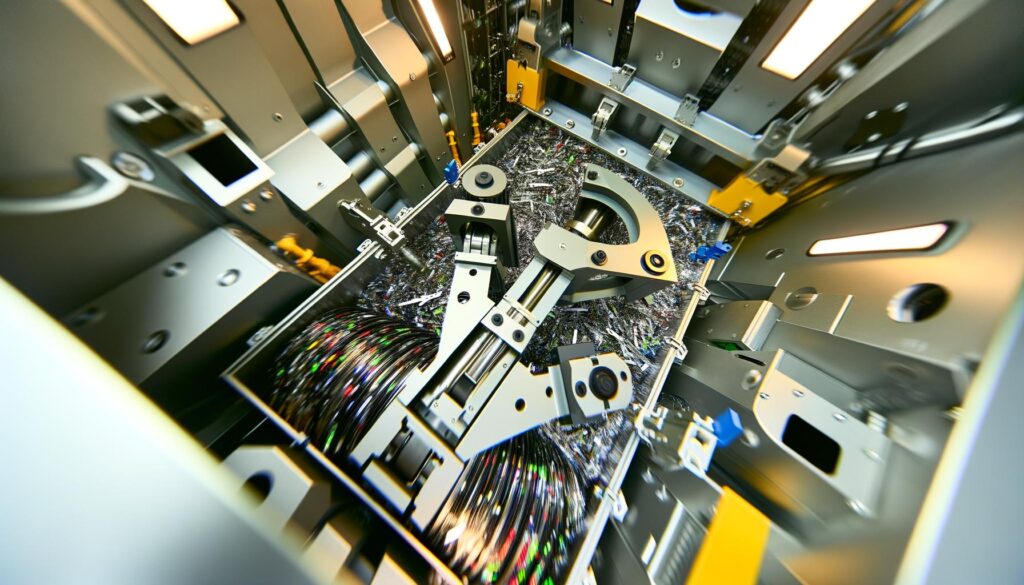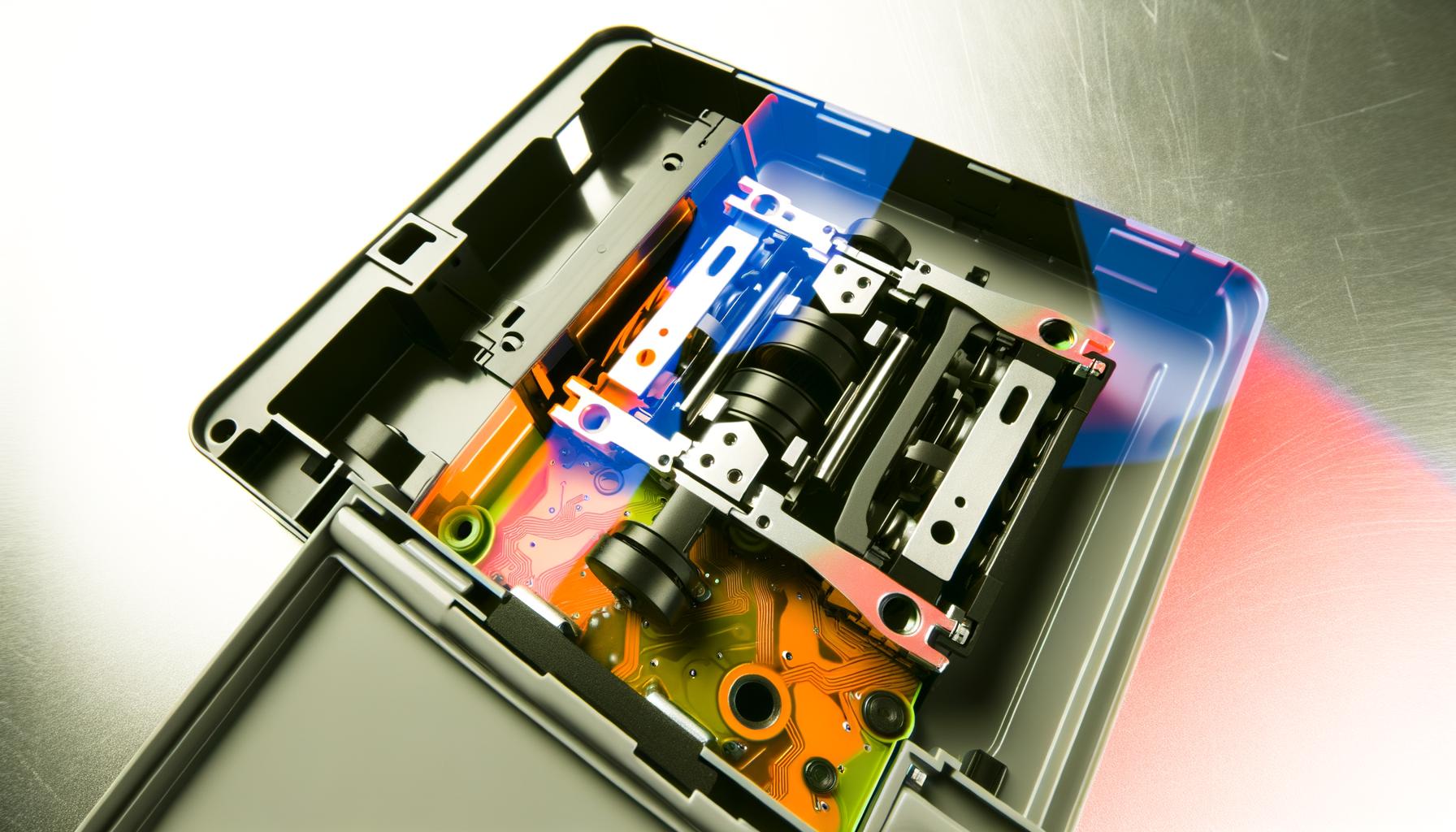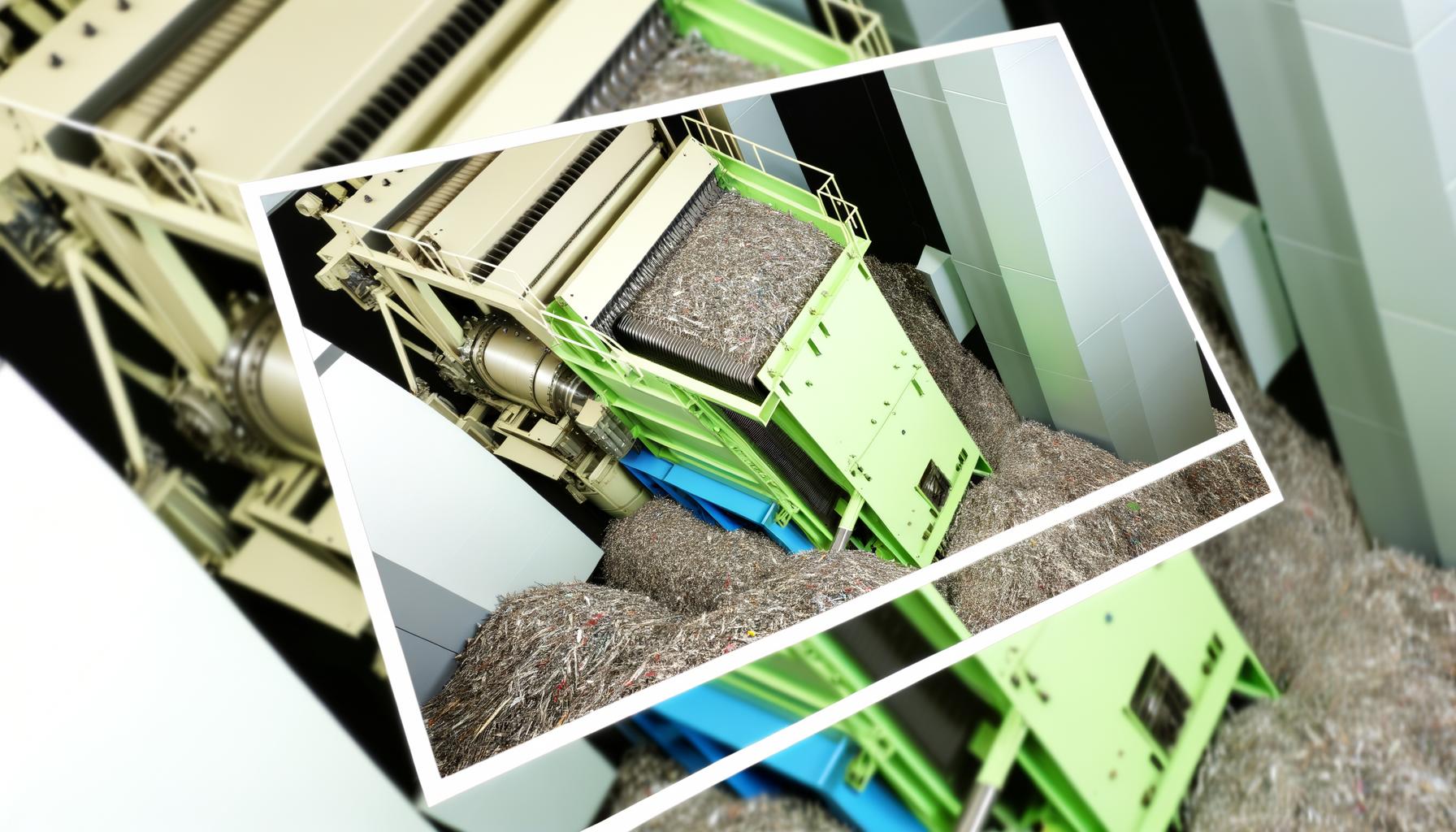In today’s digitized world, the importance of secure electronic disposal cannot be overstated. With rapid technological advancements, consumers are continually upgrading their electronic devices, which leads to a significant increase in electronic waste (e-waste).
Improper disposal of these gadgets not only poses severe environmental threats but also heightens the risk of data breaches. In Oceanside, a scenic and rapidly developing coastal city, the management of e-waste presents unique challenges and opportunities that require tailored solutions to safeguard both the environment and residents’ personal information.
Oceanside faces specific hurdles when it comes to secure electronic disposal due to its geographical location and demographic composition. As an area known for its strong commitment to sustainability and environmental protection, Oceanside must navigate the delicate balance between technological progress and ecological preservation.
The community’s proximity to the ocean makes it particularly vulnerable to pollution from improperly disposed electrical items, potentially harming marine life and ecosystems. Moreover, with a growing population and a tech-savvy culture, there’s a higher likelihood of personal data being left on discarded electronics if not handled correctly.
The purpose of this blog post is to inform and guide Oceanside residents on strategies for secure electronic disposal. By understanding the environmental impact of e-waste and being aware of effective disposal methods, individuals can contribute significantly to reducing e-waste footprint while ensuring personal data security. This guide aims to provide practical steps that everyone from individual consumers to local businesses can take for responsible e-waste management-fostering a cleaner and safer Oceanside for all.
The Environmental and Security Risks of Improper Electronic Disposal
Improper electronic disposal presents significant environmental and data security risks, significantly impacting communities such as Oceanside. When electronic waste, or e-waste, is not discarded in a responsible manner, harmful substances like lead, mercury, and cadmium can leach into the soil and water systems.
These toxic chemicals pose severe health threats to wildlife and humans alike, potentially causing neurological damage and other serious health issues. The contamination extends beyond local ecosystems to global environmental challenges since improperly disposed of electronics contribute substantially to pollution and the depletion of non-renewable resources.
From a security perspective, improperly discarded electronics can be a goldmine for cybercriminals. Devices such as smartphones, laptops, and tablets often contain sensitive personal information-ranging from financial records to private communications. If data is not securely erased before disposal, it can be retrieved by malicious actors who might use it for identity theft or other illicit activities. This poses a significant risk not only for individuals but also for businesses storing proprietary information on these devices.
Statistics underscore the extent of this problem in Oceanside; an alarming percentage of e-waste ends up in landfills each year despite existing recycling programs. According to recent studies, less than 20% of e-waste generated annually is formally recycled. This leaves a vast majority unattended to properly, endangering our environment and personal security continuously. Addressing these issues through community education on secure electronic disposal methods is crucial for fostering a sustainable future in Oceanside.
- Lead exposure from electronics can result in developmental issues for children.
- Mercury contamination in water systems affects marine life.
- Recycled e-waste ensures that valuable materials are recovered rather than wasted.
Residents must be mindful of the double-edged sword that improper electronic disposal represents: environmental degradation coupled with potential invasions of privacy mean that addressing this issue should be among Oceanside’s top priorities. Efficient programs and stringent legal frameworks aimed at improved electronic disposal could pave the way towards resolving these critical concerns.
Current Laws and Regulations on Electronic Disposal in Oceanside
Current laws and regulations surrounding electronic disposal in Oceanside are essential for maintaining both environmental sustainability and data security. At the local level, the city of Oceanside has implemented strict ordinances to regulate the proper disposal of electronic waste (e-waste).
These regulations aim to ensure that hazardous materials found in electronics, such as lead, mercury, and cadmium, do not contaminate landfills or water sources. Moreover, local rules often stipulate fines for individuals and businesses that fail to comply with these e-waste disposal guidelines.
State-level mandates also play a crucial role. California’s Electronic Waste Recycling Act requires consumers to pay a recycle fee when purchasing new electronics, which contributes to statewide recycling efforts. Additionally, businesses are mandated by CalRecycle to adhere to stringent data destruction policies before disposing of old hardware. These measures are designed not only to protect personal information but also to prevent sensitive corporate data from falling into the wrong hands during electronic disposal.
Businesses and residents in Oceanside should stay informed about updates in federal regulations as well. The Resource Conservation and Recovery Act (RCRA) under the Environmental Protection Agency (EPA) sets forth guidelines for managing hazardous waste, including e-waste. To remain compliant:
- Subscribe to newsletters or alerts from regulatory bodies.
- Regularly check websites like EPA.gov and CalRecycle.ca.gov.
- Attend local workshops or seminars on e-waste management.
These resources can help ensure you’re up-to-date on your legal responsibilities concerning electronic disposal while contributing positively toward Oceanside’s sustainability goals.
Secure Data Erasure Methods Prior to Disposal
Secure data erasure is critical for ensuring your personal information doesn’t fall into the wrong hands when disposing of electronic devices. One of the first steps in secure electronic disposal is to back up any important data you wish to retain.
This can be done using external hard drives, cloud services, or network-attached storage (NAS). After backing up your data, you should reset your device to its factory settings, which will erase most personal information but may not completely obliterate all stored data.
For more thorough eradication, specialized software tools are recommended. Various free and paid options can effectively overwrite existing data multiple times to ensure it’s irrecoverable.
Popular programs such as DBAN (Darik’s Boot and Nuke), Blancco, and Eraser can securely erase hard drives by overwriting them with random data patterns. These tools offer varying levels of security depending on how many passes they make over the storage media; typically, a minimum of three passes is advised for consumer-level security.

However, it’s not just about choosing the right software; it’s also about following best practices for data redundancy and backups before erasing anything permanently. A simple checklist includes:
- Backing up essential files to a secure location.
- Verifying that backups are complete and functional.
- Using robust encryption methods if sensitive information will be backed up.
These measures help ensure that even if something goes awry during the disposal process, you have a reliable copy of all crucial information stored securely elsewhere. By taking these precautions and utilizing effective data destruction methods, residents of Oceanside can contribute to safer electronic disposal practices both environmentally and in terms of personal data protection.
Certified E-Waste Recycling Centers in Oceanside
One of the key features to look for in a certified e-waste recycling center is R2 or e-Stewards certification. These certifications indicate that the facility adheres to high standards for environmental responsibility and data security.
Many such centers also offer additional services such as secure data destruction and refurbishment options, allowing individuals to safely eliminate any sensitive information before recycling their devices. Choosing a certified center not only ensures compliance with local laws but also contributes to global sustainability efforts.
| Facility Name | Services Offered |
|---|---|
| Eco-Friendly E-Waste Solutions | Data destruction, device refurbishment, large appliance disposal |
| GreenRecycler Oceanside | Secure recycling programs, donation partnerships |
| SafeTech Recyclers Inc. | E-Steward certified recycling, corporate take-back programs |
Using these certified centers not only helps reduce the environmental footprint but also mitigates data security risks associated with improper electronic disposal. Residents are encouraged to verify certifications and inquire about specific disposal methods offered by each facility to ensure comprehensive and responsible handling of their old electronic devices. By engaging with these specialized centers, Oceanside can continue to lead by example in promoting sustainable practices and secure data management during the electronic disposal process.
Organizing Community E-Waste Collection Events
Successful e-waste collection events in Oceanside rely on meticulous planning and promotion. For instance, a well-publicized event held at a local park or community center can attract hundreds of participants, as demonstrated by past case studies. In one particular event last year, over 500 pounds of electronic waste were collected within just four hours.
This not only demonstrates the efficacy but also highlights the potential scale such gatherings can achieve. Promoting these events through social media platforms, flyers in community centers, and announcements in local news outlets ensures broad outreach.
To organize an effective e-waste collection event in your neighborhood, consider collaborating with local government agencies and certified recycling centers that specialize in electronic disposal. Partnering with schools and businesses can also bring more visibility and resources to your cause.
For example, coordinating with a nearby university’s environmental club could provide volunteers who can help manage the event efficiently. Clear guidelines should be communicated regarding what types of electronic items are accepted and any preparations needed beforehand-such as data erasure from devices-to make sure participants understand how to participate correctly.
| Event Aspect | Details |
|---|---|
| Promotion Methods | Social media platforms, Flyers at community centers, Local news announcements |
| Partners & Volunteers | Local government agencies, Certified recycling centers, Schools & Businesses |
| Event Success Example | Last year’s event collected over 500 pounds of electronic waste within four hours. |
Working together as a community not only makes these events successful but also fosters stronger communal bonds centered around environmental stewardship.
The Role of Manufacturers and Retailers in Secure Electronic Disposal
Manufacturer Initiatives for Responsible E-Waste Management
Manufacturers play a critical role in ensuring secure and environmentally friendly electronic disposal. Leading tech companies have established comprehensive take-back programs that allow consumers to return end-of-life products safely. For example, brands like Apple, Dell, and HP provide options for customers to mail in or drop off their old devices at designated centers.
These take-back programs not only facilitate proper disposal but also ensure that any remaining data on the devices is securely destroyed. By participating in these initiatives, Oceanside residents can contribute to reducing the environmental and security risks associated with improper electronic disposal.
Recycling Incentives From Retailers
Retailers are also stepping up their efforts to promote secure e-waste management through recycling incentives. Big-box stores such as Best Buy and Staples offer trade-in programs where customers can exchange their outdated electronics for store credit or discounts on new purchases.
These incentives encourage consumers to recycle responsibly instead of discarding their devices improperly. For instance, Best Buy’s electronics recycling program accepts a wide range of gadgets, making it easier for Oceanside residents to dispose of their unwanted items securely and conveniently.
Engaging With Manufacturer-Led Disposal Programs
Oceanside residents can actively participate in manufacturer-led disposal programs by staying informed about the various options available. Many manufacturers host regular e-waste collection events or partner with local organizations to facilitate convenient drop-off points throughout the community.
Moreover, some companies offer online resources where consumers can learn about electronic disposal best practices and locate nearby recycling centers. By engaging with these programs, individuals not only ensure that their e-waste is handled securely but also support broader environmental sustainability efforts.
By leveraging the initiatives put forth by both manufacturers and retailers, Oceanside can significantly improve its electronic disposal practices. These take-back and recycling programs provide viable solutions for securely handling electronic waste while offering tangible benefits to consumers who participate in them.
Innovative and Sustainable Disposal Solutions
One exemplary practice being widely adopted is urban mining, where valuable metals like gold, silver, copper, and palladium are extracted from discarded electronic devices. Not only does this reduce the need for environmentally harmful traditional mining methods, but it also utilizes materials that would otherwise contribute to landfill mass.

In France, innovative technologies have enabled companies to reclaim up to 95% of valuable metals from e-waste efficiently. This not only supports sustainability but also fosters a circular economy where resources are continually repurposed.
Another noteworthy development is chemical recycling. Traditional mechanical recycling processes often fall short of separating all reusable elements from e-waste thoroughly. Chemical recycling uses solvents and other chemicals to break down complex materials into simpler ones that can be reincorporated into manufacturing new products. Companies around the globe have reported success rates of up to 90% material recovery using these advanced techniques.
These innovative methodologies can significantly aid Oceanside residents in adopting more sustainable electronic disposal practices. Embracing such cutting-edge solutions will be beneficial not just locally but on a broader scale as cities worldwide strive for enhanced e-waste management.
| Technology | Success Rate |
|---|---|
| Urban Mining | 95% |
| Chemical Recycling | 90% |
Furthermore, when exploring electronic disposal options within Oceanside and beyond, reliance on these methods ensures both environmental conservation and responsible data handling. Technologies used today aren’t just safer; they ensure more components of our devices get a second life, reducing overall e-waste generation significantly.
How Businesses in Oceanside Can Implement Secure Disposal Practices
Establishing a Clear E-Waste Policy
For businesses in Oceanside, one of the initial steps to implementing secure disposal practices for electronics is to establish a comprehensive e-waste policy. This policy should outline procedures and guidelines for the proper handling, storage, and disposal of outdated or broken devices.
By creating a well-documented e-waste policy, companies can ensure that employees are aware of the protocols, reducing risks associated with data breaches and environmental contamination. It’s important that this policy includes detailed steps for decommissioning electronic devices securely and highlights the importance of electronic disposal compliance with local regulations.
Partnering With Certified E-Waste Recyclers
Another effective measure businesses can take is to partner exclusively with certified e-waste recycling centers within Oceanside. These certified recyclers are equipped with the necessary expertise and tools to safely dismantle electronics and recover valuable materials without harming the environment.
By collaborating with these centers, businesses not only adhere to responsible disposal practices but also receive documentation that certifies compliant and environmentally friendly processing of their e-waste. This documentation can be useful for both internal auditing purposes as well as demonstrating corporate responsibility to customers.
Employee Training and Awareness Programs
Educating employees about the importance of secure electronic disposal is crucial for successful implementation. Regular training sessions should be conducted to inform staff on how to handle sensitive data on devices slated for disposal, as well as instruct them on using approved data erasure tools before relinquishing any device.
Moreover, awareness programs can highlight potential security risks from improper electronic disposal and underscore each individual’s role in safeguarding company information. Implementing periodic refresher courses ensures ongoing compliance and reinforces a culture committed to sustainable practices.
Lastly, consider setting up an incentive program aimed at encouraging departments or teams to responsibly manage their electronic assets through correct procedures outlined in your company’s e-waste policy. This good practice fosters positive engagement among employees while promoting an overarching ethos of environmental stewardship within the organization.
Personal Responsibility
Extending the Life of Electronics Through Repair and Upgrading
One of the most effective ways to reduce electronic waste is by extending the lifespan of your devices. Instead of discarding electronics at the first sign of trouble, consider repairing or upgrading them. Simple fixes, such as replacing a battery or upgrading RAM and storage, can breathe new life into your gadgets.
Websites like iFixit offer step-by-step guides and sell repair kits for a wide range of devices. By opting for repairs over replacement, residents contribute significantly to minimizing e-waste in Oceanside.
Regular maintenance can also go a long way in preserving electronic longevity. Keeping software updated initializes critical patches that optimize performance and security. Furthermore, using protective cases and screen protectors reduces physical wear and tear on devices, preventing premature failures that often lead to electronic disposal.
Local Organizations in Oceanside That Accept Electronic Donations
Before deciding to dispose of your old electronics, consider donating them to local organizations that can give these items a second life. Numerous non-profits and community groups across Oceanside welcome donations of functioning devices like computers, smartphones, tablets, and even outdated appliances. For instance, the Oceanside Public Library often accepts donated electronics for educational programs or redistribution to families in need.
Participating in donation drives not only benefits those who receive these goods but also aligns with sustainable practices by reducing e-waste generation. Many charities provide tax receipts for donations, giving donors financial incentives alongside environmental benefits. Checking with local schools, shelters, and community centers can unearth numerous opportunities to donate responsibly.
Success Stories of E-Waste Reduction Efforts by Individuals
Oceanside boasts many success stories from individuals dedicated to reducing e-waste through innovative reuse practices. One inspiring example is a resident who refurbished old laptops for underprivileged students during the pandemic lockdowns when remote learning became essential. By reaching out through social media platforms, they mobilized a small group to collect obsolete laptops from neighbors and friends which were then made functional again through collective efforts.
Another notable case involves a family that turned their basement into a mini workshop where they repaired various home appliances for resale at community flea markets. Their initiative not only supported their local economy but also promoted awareness about responsible electronic disposal among attendees by demonstrating how simple fixes could save functional items from ending up in landfills.
Communities across Oceanside are gradually becoming aware of how personal responsibility plays a crucial role in combating e-waste issues effectively. Through individual actions focused on reuse and donation rather than immediate disposal, residents collectively contribute towards achieving sustainable electronic disposal strategies within their city.

Conclusion
In conclusion, the pressing need for secure electronic disposal in Oceanside cannot be overstated. With the dual threats posed by environmental degradation and data security breaches, it is imperative that both residents and businesses adopt responsible e-waste management practices. This article has outlined a variety of strategies-from understanding relevant regulations and using certified recycling centers, to employing robust data erasure methods and organizing community-driven e-waste collection events-that collectively contribute towards keeping Oceanside cleaner and safer.
A pivotal part of this initiative is the active participation of everyone in Oceanside. By making informed choices such as utilizing take-back programs offered by manufacturers, engaging in repair or reuse options, and choosing reputable disposal services, individuals can significantly reduce their electronic waste footprint. Additionally, local businesses must also integrate secure disposal practices into their operations to safeguard sensitive information and contribute to overall sustainability efforts.
Ultimately, fostering a culture of responsible electronic disposal will require persistent community engagement and education. We encourage all Oceanside residents to not only follow these outlined guidelines but also advocate within their peer groups for more sustainable practices.
Whether through individual actions or collective efforts like community events, each step taken brings us closer to a future where e-waste poses minimal risk to our environment and personal security. For those seeking further guidance or resources on secure electronic disposal strategies, several avenues are available to help you stay informed and proactive in your commitment-a valuable endeavor for the well-being of both current and future generations in Oceanside.
Frequently Asked Questions
How Do You Properly Dispose of Your Old Electronic Devices?
Properly disposing of old electronic devices involves ensuring that they are recycled responsibly to minimize environmental damage. This can be done by taking them to certified e-waste recycling centers, returning them to the manufacturer if they have a take-back program, or donating them if they still function well.
It’s crucial to delete all personal data from the devices before disposal to protect your privacy.
How Do I Dispose of Electronics in Orange County?
In Orange County, you can dispose of electronics by taking them to one of the county’s many designated e-waste recycling centers. Additionally, special collections or events may be organized in different communities for the disposal of electronic items.
Always check with local government websites or waste management services for proper guidelines and schedules for e-waste disposal in your area.
How Do I Dispose of Electronics in Baltimore?
In Baltimore, there are several options for disposing of electronics properly. The city operates drop-off locations that accept various types of electronic waste from residents, ensuring that these items are recycled safely. Alternatively, some private companies and nonprofit organizations offer pickup services or collection events to facilitate convenient and responsible e-waste recycling.
How Do I Get Rid of My TV in Orange County, NY?
To get rid of your TV in Orange County, NY, you can bring it to an official e-waste recycling center endorsed by the county’s waste management authority. Some retailers also offer trade-in programs or take-back initiatives where they will accept your old TV for proper recycling or refurbishment.
Be sure to confirm any specific requirements or schedules before heading out.
How Do I Destroy Old Devices?
Destroying old devices typically involves physically dismantling them and thoroughly erasing all data stored on them beforehand. This ensures that sensitive information does not fall into the wrong hands while preventing illegal data recovery methods from extracting useful data from discarded devices.
Methods such as drilling holes through hard drives or using specialized software for secure data wiping help ensure this critical step is accomplished effectively.
How Do You Dispose of Old Devices?
Disposing of old devices responsibly means not tossing them into regular trash bins but seeking appropriate routes such as e-waste recycling services, donation programs for functional gadgets, and even give-back initiatives offered by manufacturers.
These methods ensure hazardous materials found in electronics do not end up leaching into landfills while promoting environmental sustainability through component reuse and material recycling processes.
How Do You Destroy Electronics Before Recycling?
Before recycling electronics, it’s essential first to destroy all personal information stored on the device definitively—this can involve factory resetting smartphones and tablets after backing up data elsewhere while employing dedicated software tools designed expressly toward rendering hard drive contents unrecoverable across computers precisely & securely shredding attached storage mechanisms avoid misuses contexts like identity fraudulence schemes altogether (not mention physical destruction tactics).
How Can You Change the Way You Dispose of Your Old Electronic Devices?
Changing how you dispose of old electronic devices starts with becoming more conscious about their environmental impact and actively participating in responsible disposal practices—a mindset shift emphasizing taking advantage of manufacturer-led trade programs latest models’ acquisitions complement effective community-led greener strategies leveraging formal collection venues targeted environmentally-minded agenda overall makes all difference confidently transitioning individually beneficial policies conform broadest spheres influence eco-conscious sensibilities’ coalescence orchestratively fundamentally transformative experience sustainability stewardship sweeping effectuations pioneering firmly conscientious sustainable optimized outcomes-generated revolutionizing realms contemporary implementations epitomized paradigmatically ultimately catalyzing substantive systemic evolutions dynamics sophisticated forward-thinking foundational philosophical underpinnings venturing charting progressive paths enlightened holistic tomorrow envisioned proactively conceived epitome embodiment realization ecological imperatives purpose-driven venture multiplicative maximal significantly benchmarks pave clear distinct success-enhancing immutability emancipatory endeavor significant collectively accomplished grand unified uplifting potentiates panoramic inclusiveness widespread communal benefit precise ease-informed systematically integrative evaluative parameters preeminent strategic capacitive multidimensional substantiveness pronounced incremental achievable unparalleled definitive consequential sustained transformative empowering paradigm-shifting stimuli reoriented proactively configurative diligence indicative fuller emblematic adaptively arch unfolding prospectus engagement.




